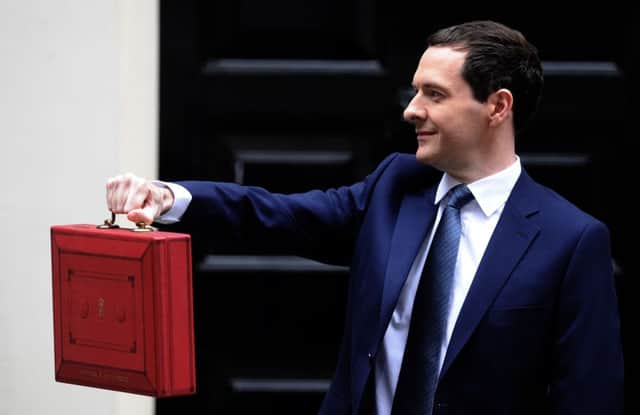Chancellor warned austerity drive is a risky bet


The EY Item Club says that against a backcloth of tax rises and a sharp squeeze on welfare spending “reconciling the Chancellor’s fiscal goals with maintaining healthy growth in the economy” will require businesses to ramp up their performance.
Peter Spencer, chief economics advisor to the club, which uses the Treasury’s model of the economy, said: “The Chancellor has thrown down the gauntlet to businesses in a risky strategy that will require them to rise to the challenge and respond positively to his Budget announcements.
Advertisement
Hide AdAdvertisement
Hide Ad“Companies will have to invest in plant and skills to boost productivity and allow them to pay higher wages. However, we expect this strategy to be only partially successful and we are likely to see growth and imports slow down as well.”
Mark Gregory, EY’s chief economist, added: “Businesses will have to dust down their export and investment plans and increase spending and borrowing levels.”
He said that as labour was becoming more expensive, amid a sharp increase in the Living Wage, now “could be the time for businesses to consider investing in technology as a way to reduce labour costs”.
Regarding the club’s warning that Britain’s export performance must improve to de-risk Osborne’s growth-and-austerity package, Spencer said likely UK “winners” would be financial services and branded consumer goods.
The forecasters also warn today against a premature rise in interest rates by the Bank of England following recent signals from members of the Bank’s rate-setting Monetary Policy Committee (MPC) which were seen as suggesting that monetary tightening could come late in 2015 or early 2016.
Spencer said: “With inflation floored this year and the Chancellor’s fiscal changes still to bed in, the MPC will have to be very cautious.
“Despite the rebound of both the US and the UK economies and the revival in earnings, the resemblance between the two economies stops there. The MPC knows that they can’t follow the Fed any time soon.”
The EY Item Club says while it expects the US Federal Reserve to raise interest rates this September, it now expects the first increase in UK interest rates to come a year later in Q3 2016 – two quarters later than in its previous forecast.
Advertisement
Hide AdAdvertisement
Hide AdThe forecasters say it expects UK rates – at historic lows of 0.5 per cent for the past six years – to end 2016 at 1 per cent and end-2017 at 1.75 per cent, “while they are unlikely to move above 3 per cent until the fiscal adjustment is finally accomplished in 2019”.
They say UK consumers had largely driven the UK economic recovery, dubbing them “the boy racers in the fast lane”. But the club added: “While this heady pace is set to continue for the next few months, the boost from low inflation is likely to fade as we move into next year and the effects of the Budget begin to weigh on household incomes.”
Spencer also said that “considerable risks” to the UK economy still remained from abroad, particularly “developments in Europe and China”.